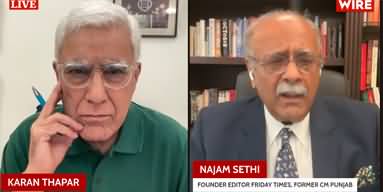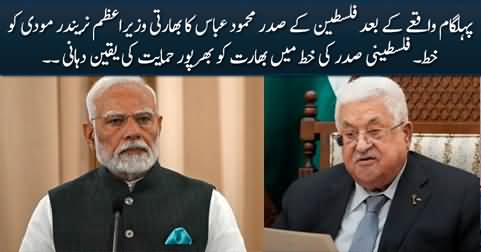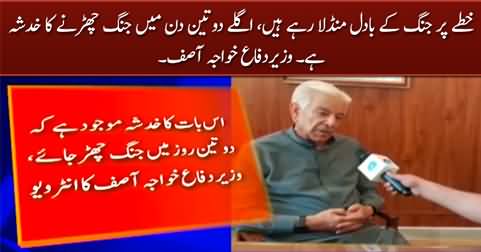Woman acquitted of blasphemy after two years, falsely implicated by sexual harassers
توہین رسالت کے الزام میں گرفتار خاتون بری
فریدہ بی بی پر ’رمضان المبارک کی عبادت‘‘ نامی کتاب میں قرآن پاک کی آیات پر مشتمل صفحات کو پھاڑنے اور جلانے کا الزام تھا۔ خاتون کے خلاف محمد عرفان نامی شخص نے مقدمہ درج کروایا تھا جس نے اس جرم کا گواہ ہونے کا دعویٰ کیا تھا۔
متاثرہ خاتون کے خلاف تھانہ یکی گیٹ پولیس نے 19 دسمبر 2020 میں مقدمہ درج کیا، جس میں خاتون پر عبادات سے متعلق کتاب کے صفحات جلانے کا الزام تھا۔
تفصیل کے مطابق لاہور کی ڈسٹرکٹ اینڈ سیشن کورٹ نے دو سال قبل توہین رسالت کے الزام میں گرفتار خاتون فریدہ بی بی کو رہا کر دیا ہے۔ گذشتہ ہفتے ایک سماعت کے دوران عدالت نے حکم دیا تھا کہ ملزمہ اگر کسی اور کیس میں مطلوب نہیں تو اسے فوری طور پر رہا کیا جائے۔
ایڈیشنل سیشن جج حافظ حسنین اظہر شاہ نے تحریری فیصلہ جاری کیا جس میں شک کا فائدہ دیتے ہوئے خاتون کو بری کیا گیا، فیصلے کے مطابق پراسیکیوشن ملزمہ خاتون کا جرم ثابت کرنے میں ناکام رہی۔
کارروائی کے دوران، ملزمہ کے وکیل نے دلائل میں کہا کہ فریدہ بی بی کو ’شکایت کنندہ کی طرف سے بددیانتی اور مذموم مقاصد کے ساتھ جھوٹے مقدمے میں پھنسایا گیا‘۔
وکیل نے دلائل میں مزید کہا کہ ’محمد عرفان اور اس کے دوست نے میری مؤکل کی چھاتیوں کو زبردستی چھونے کی کوشش کی اور جب اس نے اسے روکا تو اس پر توہین مذہب کا الزام لگایا جبکہ ملزمہ کو کتاب اسی حالت میں مقدّس اوراق کے ڈبے سے ملی تھی‘۔
عدالت نے 6جنوری 2022 کو فیصلہ دیا تھا کہ خاتون کو بری کر دیا جائے اور وہ اپنے گھر جا سکتی ہے۔ جوڈیشل مجسٹریٹ نے فیصلے میں ریمارکس دیے کہ ’انہوں نے کیس پراپرٹی (کتاب) کا جائزہ لیا اور ہارڈ کور کے اندر صرف ایک صفحہ چسپاں پایا جو آدھا پھٹا اور تھوڑا سا جلا ہوا تھا۔ کتاب کا صفحہ اول اتنا ہی محفوظ ہے جتنا کہ یہ ایک نئی کتاب ہے، یہاں تک کہ کتاب کے اندرونی صفحات سے پتہ چلتا ہے کہ یہ اچھی حالت میں ہے‘۔
Source
Woman acquitted of blasphemy, falsely implicated by sexual harassers
A Lahore district and sessions court has acquitted Fareeda, a woman accused of blasphemy two years ago.
At a hearing last week, the court ordered she be freed immediately if she isn’t wanted in any other case.
Fareeda was accused of tearing and burning pages containing the verses of the Holy Quran in a book titled “Ramzan-ul-Mubarak Ki Ibadat”. A case against her was registered by a man identified as Muhammad Irfan who claimed to be a witness to the crime.
On December 19, 2020, an FIR was registered against Fareeda under the Code of Criminal Procedure.
During the proceedings, the defence contended that Fareeda had been “falsely implicated in the case by the complainant with mala fide and ulterior motives”.
“Irfan and his friend tried to touch my client’s breasts forcibly and accused her of blasphemy when she stopped him. The accused lady took the book in the same condition from the Muqadas Orraq Box,” he said.
On January 6, 2022, the court ruled that the woman was free to go home.
In his verdict, the judicial magistrate remarked that he perused the case property (the book) and found only one page affixed inside the hard cover half torn and slightly burnt. “The front cover page of the book is as safe as it seems to be a new book. Even the internal pages of the book reveal that it is in good condition,” he observed.
“If the accused lady burnt the Holy book for about two to three minutes (claimed by the complainants) it should have been completely burnt but this is not the case.”
The court pointed out that the case has not been thoroughly investigated by the police and investigation officer. A forensic exam of the book wasn’t conducted either.
The judge, subsequently, acquitted Fareeda while extending her the benefit of doubt.
In the verdict, the court quoted a Supreme Court ruling in another blasphemy case: “It is hardly necessary to reiterate that the prosecution is obliged to prove its case against the accused beyond any reasonable doubt and if it fails to do so the accused is entitled to the benefit of doubt… It is better that ten guilty persons be acquitted rather than one innocent person be convicted.”
This rule occupies a pivotal place in Islamic law and is enforced in view of the saying of the Holy Prophet (PBUH) that the mistake of a qazi (judge) in releasing a criminal is better than his mistake in punishing one.
Source

 Irshad Bhatti grills Shahid Khaqan Abbasi for taking Tosha Khana gifts
Irshad Bhatti grills Shahid Khaqan Abbasi for taking Tosha Khana gifts
 Najam Sethi talks to Karan Thapar on Pahalgam attack and Pak India clash
Najam Sethi talks to Karan Thapar on Pahalgam attack and Pak India clash
 Palestinian President condemns Pahalgam attack, reaffirms support for India in letter to Modi
Palestinian President condemns Pahalgam attack, reaffirms support for India in letter to Modi
 Hilarious memes on social media by Pakistanis on situation after Pahalgam attack
Hilarious memes on social media by Pakistanis on situation after Pahalgam attack
 There is a grave possibility of war in next few days - Defence Minister Khawaja Asif
There is a grave possibility of war in next few days - Defence Minister Khawaja Asif
 PTI leader Sanam Javed arrested in May 9 case
PTI leader Sanam Javed arrested in May 9 case










